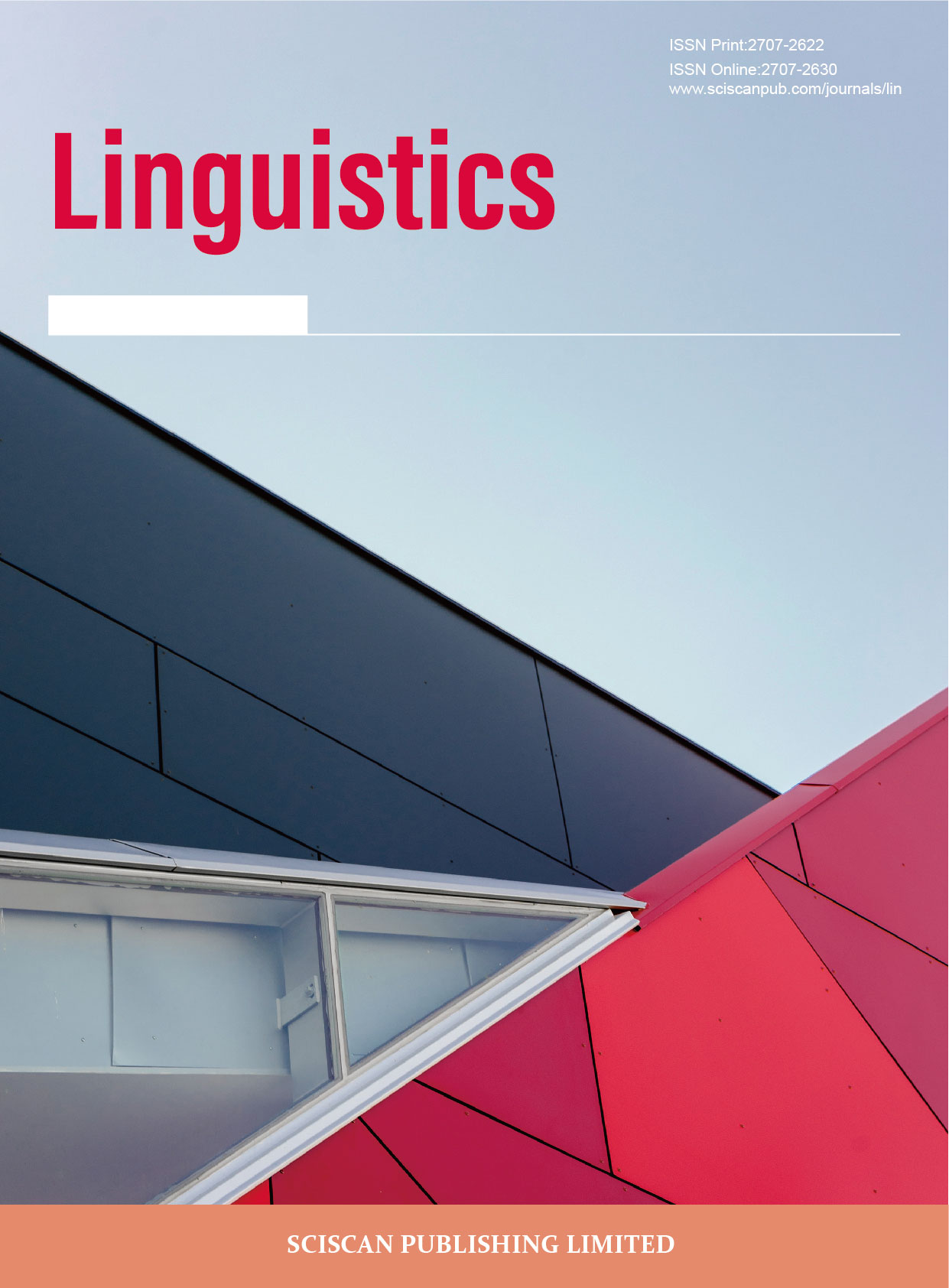此数字非彼数字——来自藏、汉数字的比较
This Number is Not that Number— A comparison Between Tibetan and Chinese Numerals
- Authors: 高星¹ 张惠² 李慧芳³ 崔占玲¹
-
Information:
1.河北师范大学教育学院,石家庄; 2.河北经贸大学外国语学院,石家庄; 3.河北师范大学外语教学部,石家庄
-
Keywords:
Tibetan numerals; Chinese numerals; Numeric culture藏族数字; 汉族数字; 数字文化
- Abstract: Numbers are the basic unit of mathematics and the cornerstone of mathematical language. As a representation of the number and order of things, numbers themselves do not have the distinction of good or bad, praise or criticism, lucky and unlucky. However, with the development of language and culture, numbers’ culture with unique national characteristics has been endowed with some symbolic meanings in different language and ethnic backgrounds. People’s preference for numbers is also influenced by national belief and language worship, which enables numbers to carry more cultural information and enrich cultural connotation. China has a large number of ethnic minorities, because each ethnic group has its unique culture and belief, so the number also has a strong national color and special cultural connotation. This paper discusses the worship and taboos of numbers between Tibetan and Han nationalities, as well as their views on number culture. 作为数学文化的传承者、数学信息的承载者和数学教学的传递者,数字本身没有好坏、褒贬、吉凶之区分。但不同语言与文化赋予了数字不同的象征意义,数字也因此具有浓厚的民族色彩和特别的文化内涵。受民族与文化的影响,不同民族个体对数字有不同的偏爱,“此数字非彼数字”。我国少数民族众多,民族文化各具特色,汉文化尊崇双数,藏族崇单忌双。本文以藏、汉民族的数字崇拜与禁忌为例,阐释不同民族的数字文化观。
- DOI: https://doi.org/10.35534/lin.0304038
- Cite: 高星,张惠,李慧芳,崔占玲.此数字非彼数字——来自汉、藏数字的比较[J].语言学,2021,3(4): 587-598.
1 引言
民族教育一直备受重视。基础教育是民族教育的基石,理科教育,特别是数学教育,在一定程度上制约着少数民族基础教育的发展。2012年国家民委曾以“以数学课程为龙头,全面推进民族地区理科课程的发展”为理念召开研讨会,明确提出“加强数学与理科课程建设是民族地区迎接未来挑战的迫切需要”。只有“搬掉少数民族数学教育这个拦路虎,才能促进少数民族素质教育的全面发展”。民族数学教育日渐受到重视,主要围绕数学文化与民族数学教育展开系列研究。但是,数学文化为何以及如何影响民族数学教育,目前仍不得知。数字,作为数学文化的传承者、数学信息的承载者和数学教学的传递者,至今未能引起研究者的关注。数字具有浓厚的民族色彩和文化内涵。例如,汉文化尊崇双数,有“六六大顺”“十全十美”之说;藏族则偏好单数,选择数字时“崇单忌双”。可见,同一数字在不同民族的内涵不同,“此数字非彼数字”。对于掌握不同民族文化的个体,在不同文化背景下,同一数字是否仍是“那个数字”?本文将选取藏、汉文化中对不同数字的不同数字观来对此予以回答。
2 数字文化观
数字最早用于原始部落群居时的交易计数。藏族数字主要来自“石木算法”的升华,从以身体器官或石子、木棍来代替牲畜数量,后期发展到“以石块计个位,木棍计十位”。为了提高计数效率,藏族人民还创造了以人体脸部器官为主的藏族数字[1]。与藏族人民相似,汉族数字也源于计数需要,最初用手指计数。郭沫若曾提出:古人用手指表示数目,逐渐形成汉字数字,计数顺序为“先出右掌,倒其拇指为一,次指为二,中指为三,无名指为四,一拳为五,六则伸其拇指,轮次至小指,即以一掌为十”。对于数字的使用,除了体现在对于经济活动中的记录,也体现在对于文化的传播,历史的传承和记录[1]。
2.1 汉族数字文化观
汉族的数字文化观主要表现为崇拜偶数,将偶数作为吉祥数字。众多汉语成语都传递了汉族对偶数的崇拜。譬如,夸赞他人为人处世时的“四平八稳”,形容交通十分便捷时的“四通八达”,祝福友人事事圆满时的“六六大顺”,表达非常自信有把握时的“十拿九稳”,形容完美无瑕的“十全十美”等。此外,十以上的数字中,偶数也更受偏爱,例如十二、二十四、三十六、七十二等。在日常生活中,偶数也蕴含着吉祥如意的文化内涵,凡事都追求“好事成双”“双喜临门”,在与他人交往中会选择送双份礼物,在春联和修辞格中的对偶,也体现了汉族对偶数的情有独钟。
汉族崇拜偶数由来已久。作为世界四大文明古国之一,阴阳二元学说自古至今都深受汉民族崇信,认为世间万物都由“阴”“阳”构成,唯有两者交融才会滋养万物。老子作为道家创始人之一,一直主张“天人合一”,在《道德经》中曾写道:“道生一,一生二,二生三,三生万物”,并主张事物都存在相互对立的两个方面,即:好与坏,对与错,长与短,明与暗,动与静。在《易经》中,也主张事物从一化为二、二化为四、四化为八,并写道:“易有太极,是生两仪,两仪生四象,四象生八卦”。汉族对偶数的崇拜,自古至今都体现了中国人期盼吉祥、向往美好的民族文化心理。任何事物都有双重性,中国人更多地赋予事物以好的属性,展现出中华民族美好和谐的心理。
2.2 藏族数字文化观
藏族几乎全民信仰宗教,宗教是藏文化的核心。对宗教的崇拜与信奉,与藏民族文化与生活息息相关,并因此形成了藏族特有的数字文化观。
藏文化遵循“崇单忌双”原则,认为奇数为阳,奇数象征吉祥,因而 “三”“五”“七”“九”“十三”都是吉祥奇数[2]。谚语和民俗故事中常能看到对奇数的描述。例如 “天神自天空降世,在天空降神之处上面,有天父六君子,三兄三弟,连同墀顿祉共为七人”“生下九个儿子建下九个寨,养了九个女儿辟了九座庄”等。藏族的重要日子或者活动一般都选择奇数日期,以祈祷平安。例如,与婚嫁相关的提亲日、订婚日、结婚吉日、出阁时辰、成大礼时间等,一般选择一、三、九等日期。藏族酒文化中也蕴藏着数字文化。为了表达尊重,常与友人碰杯三次,每次碰杯各饮三杯,共饮九杯[3]。“拉则”中添箭杆一般放单数,三、五、七、九、十一、十三等。藏民家供佛时,佛灯多为五盏、七盏,点灯数也相同,三盏、五盏、七盏或十三盏等[4]。
藏族对于奇数的崇拜,与宗教密切联系,并历经千年实践和长期文化冲刷[5]。相关主要历史事件有:一是,文成公主入藏时,携大量唐朝的历法典籍和相关方士;二是,莲花生大士进入汉地五台山,学习汉地传统天文历法及周易八卦五行学说,学成后带回藏地进行传播;三是,从古印度传入的《时轮历》影响深远[6];四是,古象雄中苯教文化遗留下的历法。这些构成了藏族文化对数字的崇拜与忌讳,并促进了藏历发展。例如,唐卡中“三阶纵横图”,源自莲花生大士在藏传播时创造的“文殊九宫八卦图”,其中,1-9九个数字排成三行三列,每行每列及两条对角线上的三个数之和相等。九宫图及9个数字在藏族传统生活中是非常重要的。在占卜时,九宫图中的9个数字会赋予与人的命运有关的具体内容[7]。此外,唐卡在西藏密宗中有“三身佛”的说法,即法身、报身、应身。密宗修持也分为“九乘次第”。
3 汉、藏数字之同工异曲
3.1 数字崇拜
藏、汉民族都偏爱数字“三”“六”“九”,并视其为神圣和吉祥的象征。“六”作为“三”的倍数,在藏文化也备受推崇。但因文化背景与宗教信仰的不同,三个数字在藏汉文化中有不同的表现形式与文化内涵。
3.1.1 数字“三”
“三”是汉族吉祥数字中为数不多的奇数。自古以来,中国文化中就存在着诸多与“三”相关的思想观念。例如,古诗词中的“三辰”即为日、月、星;“三才”即为天、地、人;“三生”即为前生、今生与来生。在人际关系中,有“三纲”即君臣、父子、夫妇;亦有“三族”,即父、子、孙。古代有“三教”即儒、道、释,后演绎为“三教九流”。道教中存在“三清”,即玉清元始天尊、上清灵宝天尊、太清道德天尊。此外,日常生活中也常见对“三”的崇拜。俗语中有“三个臭皮匠、赛过诸葛亮”“一个好汉三个帮、一个篱笆三个桩”等。可见,汉族自古便将“三”视作吉祥数字。对于“三”的倍数,尤其是“三”“六”“九”,则更加崇拜。藏族亦如此。
藏族特别偏爱“三”。不论宗教信仰还是日常生活中,“三”都象征着完美与吉祥。在藏传佛教中,充满着对“三”的追崇。例如,将福寿吉祥的象征(即无量寿佛、尊胜佛母和白度母)合称为“长寿三尊”,将“声闻乘、缘觉乘、菩萨乘”合称为“三乘”,将“佛、法、僧”合称为“三宝”。苯教亦以“三”为单位,将宇宙分为“天、地、地下”三部分,将生死轮回划为“欲界、色界、无色界”三界。著名的藏族史诗《格萨尔王》中,也有“三大佛”“三大寺”“三大部落”“三大圣人”等的描述,认为“三”表示“天、地、人”三才,无比尊贵。藏族壁画中的护法神像也都为“三头六臂”。在日常生活中,藏族也广泛使用数字“三”。把酥油、奶、奶酪称为“三白”,把马、牛、羊称为“三畜”,把弓、箭、刀称为“三眷属”。此外,在藏文化中,“三”还象征着完美与稳定。喝酒追崇“碰三次、饮三杯”以示尊重。重大节日与重要活动一般与“三”有关。如订婚时需准备“如意宝贝”三件,迎亲程序和礼节有“谢亲朋、上发装、启程礼”三项,新娘到男方家后要顺时针转“三圈”,结婚日期选择“三”或“三”的倍数,婚期一般持续“三天”,磕头叩拜时“三步一拜”,圆圈舞的基础舞步亦为“三步一变”。
3.1.2 数字“六”
“六”作为“三”的倍数,是汉族最为吉祥的数字,在文韬武略上表现得淋漓尽致。例如,经典著作《诗》《书》《礼》《易》《乐》《春秋》合称“六经”,思想学派有阴阳、儒、墨、名、法、道德合称“六家”。治国之道有“六典”,军事兵法有“六韬”,古时天子统领“六军”,皇后协管“六宫”,王城内设“六乡”,官员分配制度遵循“六部”,天文历法有“六合”,佛教有“六识”,甚至古代绘画也有“六法”“六要”和“六彩”。在民间,亲属关系为“六亲”,妇女怀孕为“身怀六甲”,人体有“六腑”,至今还有“六六大顺”“六畜兴旺”“眼观六路,耳听八方”的俗语。在选择电话号码、车牌号等号码时,尤其钟爱尾数为“六”,象征顺顺利利、万事如意。
在藏族文化中,“六”被视为“三”的倍数,使用时不被忌讳,是藏族为数不多的双数崇拜数字。选择重要日子和时辰时,藏族一般都请佛教法师占卜算定。除了“三”和“九”崇拜数字之外,数字“六”也是常选择的数字,喜客数量一般也为三、六或九人。
3.1.3 数字“九”
“九”由象形文字(即龙/蛇形状)演化而来[8],蕴含“神圣”之意。在汉族文化中备受追崇。作为最大数,“九”象征着“无限”。在阴阳五行和数字关系上,“九”为最大阳数,象征“天”。古典《素文》中记载“天地之数,始于一,终于九”[9]。天分“九”层,冬天分“九”节,天诞日为正月初九,天子祭天一年九次。帝王尊位为“九五之尊”,位次皇帝是“九千岁”,甚至皇宫殿宇的建筑亦布满“九”:北京城有九门,北海附近有九龙壁,故宫有九千九百九十九个房间,天安门城楼面阔九间,门上饰有九路钉,宫殿有九级或九的倍数级台阶。在民间,因“九”“久”谐音而备受推崇,“九九”与“久久”谐音,寓为“天长地久”。此外,还有“女大十八变”“三十六计”“孙悟空七十二变”“三百六十行,行行出状元”等俗语,都取“九”之意。
作为三的倍数,“九”在藏语中代表一切、多、无穷、所有等虚数,是神圣一样的存在。苯教“宇宙观”中,天地各有“九”层,雍仲山有九叠,经论有九乘[4]。祭祀山神“拉则”时内部插九节长箭。藏历新年是二十九日晚上,家家户户吃“九粥”,美食“古突”包有九种东西。藏族建筑也与“九”有关。驰名国内外的白科塔有九层,布达拉宫有三道围城,中心九层楼有九百九十九个房间。“九”在藏族文化中,除了表达了不确定的数目之外,还和汉族中的“百倍”表达的含义一样,例如《青稞种子的来历》中讲到,去日乌达的路有九千里,有九十九座山,九十九条河等。藏族对数字“九”和“九”的倍数十分喜爱,尤其喜欢“108”。例如,拉萨大昭寺有108根柱子,廓殿初檐和重檐间有狮头像108只,萨迦南寺大经堂一层7米高的巨柱有108根,塔尔寺大殿经堂1米以上圆柱有108根,甘丹寺大经堂有108根大柱,白科塔有108个门,桑耶寺周围塔群有108座。
3.1.4 数字“十”
“十”也是汉族最为喜爱的数字。“九加一”为“十”,与“九”同义,都可代指约数,象征美满、齐全、到达极致、吉祥等。例如,为了对中国历史的思想文化等领域做出贡献的前人表达尊敬和敬仰,后人将历史上各领域最杰出的人物尊称为“十圣”。我国还选取了栽培历史悠久、观赏价值高、富有民族特色的十种花,称为“十大名花”。直至今日,新闻界每年评选“十大新闻”,体育界和影视界每年评选“十大明星”等。另外,在名字选择上,汉族也追崇数字“十”。例如,在城市建设中,北京有“十里长安”,南京的“十里秦淮”,上海的“十里洋场”,湖北的“十堰市”。在重大活动中,为了追求“十全十美”,常常“凑十”举行活动,如,各种纪念日(如个人生日、公司年会、国家国庆等)“逢十”大庆。除此之外,《论语》中亦有记载:“三十而立,四十而不惑,五十而知天命,六十而耳顺,七十而从心所欲,不逾矩”,均以“十”进行划分。
藏族对数字“十”也十分喜爱。除了“十”象征美满外,在藏传佛教中还有“十相自在”(即,寿命自在、心自在、愿自在、业自在、受生自在、资具自在、解自在、神力自在、法自在、智自在)。“十相自在”是具有神圣力量的10个符号,包括三个图形和七个梵文字母,表达了吉祥圆满、眷属和睦、身心安康等美好的祝愿。在塔门、壁书、唐卡上都有所体现,也会制成护身符和珐琅佩戴在胸前。
3.2 数字忌讳
中外各民族都一直保留着“数字禁忌”文化,并在潜移默化中,不断影响各民族文化的发生与发展。西方国家对数字比较忌讳,在日常生活对忌讳数字避而不谈,甚至用其他数字或词语代替。例如,数字“十三”常用“a baker’s dozen”来代替,“星期五”被称为“black Friday”[10]。汉族对数字的忌讳没有西方国家强烈,但对与死亡相关的数字都比较回避。对于藏族来说,因为占卜是其重要活动,数字象征吉凶。
3.2.1 数字“四”
“四”在中国古代是吉祥“玄数”。譬如,事情办得稳是“四平八稳”,天下太平是“四海升平”,拥有远大抱负是“志在四方”。在古籍中还有《四书》《四库全书》,近代有《四世同堂》之说。在建筑上,以北京四合院为代表,“四”代表四四方方。但是,随着谐音文化的发展,“四”与“死”发音相近,在趋利避凶文化影响下,“四”越来越被嫌弃。例如,日常选择数字号码(如手机、车牌等),常常避讳数字“四”,甚至高层建筑中没有4层(也有例外,譬如殡仪馆相关的数字),网络语言更加剧了谐音忌讳,如“一四”(谐音“要死”),“五一四”(谐音“我要死”),“七四八”(去死吧)等。
藏族对四的忌讳在占卜中有深刻体现。三次掷骰子中,出现“三”和“四”为中等,出现 “十四”则为中等但趋于凶,出现“四”和“六”则为凶。“凶”数字中,大多为偶数,或者与“四”相关。可见,藏族对“四”的避讳[2]。而且,由于藏族和汉族文化的交汇,藏族对发音与“死”相关的数字(如“四”)也避而远之。
3.2.2 数字“七”
与“四”相似,“七”在汉族古代传统历法中也是吉数。例如,采用“七曜日”计周,“七曜”又称“七政”,即对“太阳”(太阳)、“太阴”(月亮)、“辰星”(水星)、“太白”(金星)、“荧惑”(火星)、“岁星”(木星)、“镇星”(土星)天体的合称,“七”在古代代表完整的周期循环。但使用时也存在一些避讳。因为“七”常与祭奠有关。例如,人死后过“头七”回煞。从亡者卒日算起,丧家每隔七天祭奠一次,共七次,俗称“烧七”。从亡者卒日算起七七四十九天后,才算完成“守七”出丧。因此,“七”日渐成为汉族忌讳的数字,在重要活动选择日期时,如婚嫁吉日,都回避带“七”的日期;送礼请客时,也回避“七”件礼物,甚至饭桌菜碟亦回避“七”。在封建社会,更是将休妻理由归纳为“无子、淫佚、不事舅姑、口舌、盗窃、妒忌和恶疾”——即“七出”。
藏族对数字“七”的态度主要源于对亡者的敬畏。受宗教文化的影响,藏文化中认为,人过世后并非消失,而存在“中阴身”。“中阴身”七天为一个周期,每七日皆有可能转世一次。因此,藏族对于逝者过世后逢“七”的日子都特别重视。去世第七天和第四十九天都要诵经。除此之外,藏族人民依旧信奉“崇单忌双”,在占卜中,“七”和“十七”都是大吉的寓意[2]。
3.3 汉、藏数字之异曲异工
汉族以偶为贵,藏文化崇奇忌偶,汉、藏文化对数字“十三”和“八”差异较大。
3.3.1 数字“十三”
汉族忌讳“十三”,这与西方对“十三”忌讳有关。西方国家对于“十三”的忌讳主要源于宗教信仰,《圣经》中有记载,耶稣基督与他的十二门徒吃最后的晚餐时,出卖他的犹大恰好就坐在第十三个座位上,而且耶稣被钉在十字架上的受难日是十三日;另外亚当受诱惑吃禁果的日子也是在十三日,所以“十三”在西方被认为是一个很不吉利的数字。而在中国改革开放后,由于内外文化的交融,这种对于“十三”的忌讳才逐渐被我国了解,但并不是我国特有的一种主流数字文化。其实在古代,人民对于“十三”还是存在一定的喜爱,例如古人的经典治学“文本”——“十三碑林”;作为著名建筑之一的佛塔也是以“十三”层作为最高级别的象征;“十三陵”作为世界名著之一,也是我国对于历史理解的重要见证。另外在《唐书》中提到,皇帝的服饰有十三个金环以象征尊贵;汉武帝时期将领土划分为十三个郡;近代的京剧有“十三流派”等,都体现了“十三”在我国并非十分忌讳。并且我国作为多民族多文化的大民族,各民族之间的文化交融也十分密切,所以对于“十三”的理解,并非像藏族或者西方国家一般,十分喜爱或者十分避讳,而是一种包容的态度。
藏族尤其喜爱数字“十三”。在神话中,天有十三层,故“十三”象征天,象征着完美与神圣。在吐蕃时代,藏民宰杀牲畜祭祀时,要将牲口躯干分为十二块,再和头一同献上,共“十三”块以展现诚意。史诗《格萨尔》中记载:天神之子格萨尔出生时,手持十三朵白花;十三岁时赛马赌注获胜、迎娶珠牡为妻、登上岭国王位;他拥有“十三”位王妃和保护神,拥有雪山、山崖、湖泊、神柏等国土都是十三;坐骑“赤兔马”的飞毛、风脉等数目亦以十三为计数单位。《天界篇》中出现的事物以十三为计数单位,如,护法天神、护藏地神、西藏山神、藏身宝等。祭祀战神时,亦以十三为一组;供奉所用焚香炉、战旗、经书、小食等都要备上十三份,祥瑞舞和发愿歌亦要十三场。如此方显尊重,寓意吉祥昌盛。藏族建筑中也蕴含对数字“十三”的崇拜。如,布达拉宫缘山而筑、盘蹬而升,袅袅十三层。可以说,藏族对数字十三的崇拜源远流长。
3.3.2 数字“八”
在汉族文化中,“八”代表世间万物,也代表空间上的完整与圆满,汉族文化偏爱“八”。在中国古代,天、地、人相互照应,并将“十”以内数字与天、地相对应,其中奇数代表天,偶数代表地。而八是“数之大者”,因此得以偏爱。古代天子也偏爱“八”。例如,用“八佾”享受、“八簋”祭祀,用车需“八鸾”,驭臣用“八柄”,统率万民用“八统”,治理国家用“八政”。在《易经》中,有“巽、离、坤、兑、乾、坎、艮、震”八种卦象,八卦有八种象征意义,表示万事万物,象征世间各种现象。此外,因“八”与“发”谐音,广东话中“八八”读作“发发”,寓意发大财、交好运,因此,选择与数字相关的号码(如手机、车牌、门牌等),偏爱带“八”的号码,如“一八”(要发)、“一六八”(一路发)、“五一八”(我要发)等。对“八”的喜爱,充分体现了汉族对美好生活的向往和包容并蓄、天人合一、敬畏自然的优良品质。
藏族对“八”没有特别喜爱与避讳。在藏文化重要的占卜中,数字“八”和“十八”也为中、趋吉[2]。
总之,受宗教信仰和社会习俗的影响,不同的国家或地区,至不同的民族,对同一数字赋予不同寓意。数字不再是普通数字,而承载着诸多文化信息,蕴涵着一定的民族文化内涵。由于藏传佛教和汉传佛教的同根性[11],汉族与藏族在数字文化观上既存在着独特性和民族性,又有着密切的联系和共同性。中国自古就有“百家争鸣”“百花齐放”的多元文化发展,而且我国有56个民族,每个民族都有其民族文化特征。面对民族文化,我们更应兼容并蓄,展现中华民族多元共存、和平发展的传统。
参考文献
[1] 王琼,罗布.藏族传统文化中蕴含的数学思想[J].西藏研究,2009(1):52-58.
[2] 凌立.浅述藏族的吉祥奇数现象[J].康定民族师范高等专科学校学报,2004(2):1-5.
[3] 仇保燕.藏族人心目中的吉祥数字[J].西藏人文地理,2002(2):20-21.
[4] 王琼.藏族传统生活中的数字文化[J].西藏大学学报(汉文版),2007.
[5] 催成群觉,索朗班觉,却旺,等.藏族天文历法史略[J].西藏研究,1982(2):14.
[6] 黄明信,陈久金.藏历原理研究(上)[J].西藏研究,1982(1):11.
[7] 大罗桑朗杰,华宣积.藏族喜用纵横图[J].西藏大学学报(汉文版),2001(4):37-42.
[8] 徐丽娟.东西方数字“九”的文化分析与翻译[J].武汉工程职业技术学院学报,2011(11):77-78.
[9] 贺尔一.九月说“九”[J].老年教育:老年大学,2007(9):49.
[10] 曹容.中西数字的文化观比较[J].四川理工学院学报(社会科学版),2006(1):101-104.
[11] 郑堆.藏传佛教与汉传佛教的联系与区别[J].中国藏学(藏文版),2021(3):11.
















